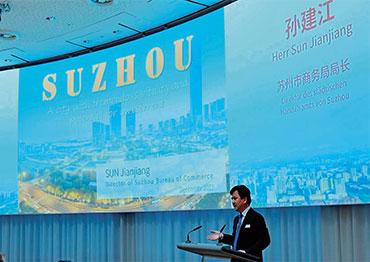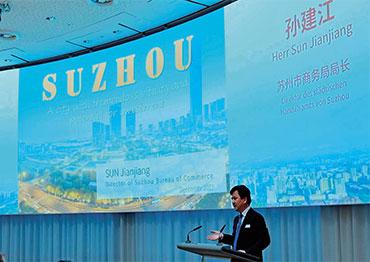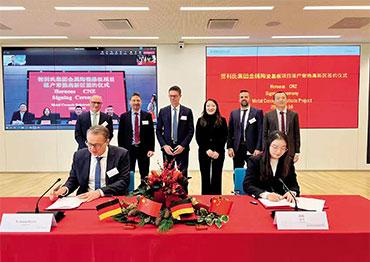In December 2022, Shen Danyang, the deputy provincial governor of Hainan, led an investment promotion team to Hong Kong and Germany, the first provincial leader to go abroad to bid for investment in three years. Many places in China followed suit, sending high-ranking officials to lead investment delegations as a show of faith and to better facilitate the decision-making process.
“Some foreign companies required a high-level official to meet with their president or vice president,” Wei Lin said.
Zhejiang Province launched its “Invest Zhejiang” campaign on January 9. The next day, the province sent its first provincial-level investment delegation to Hong Kong. By the end of February, over 10 provinces including Zhejiang, Jiangsu, Guangdong, Anhui and Shandong sent provincial and city-level teams abroad to attract investment. Several people on these trips said they felt intense competition between provinces. Provincial leadership led many teams directly.
Local governments are holding investment events at home and abroad. On December 9, 2022, Shenzhen launched a global conference to promote investment. Combining online and offline activities, the conference discussed 315 projects worth 879 billion yuan (US$127.7b).
At the end of February, Qingdao in Shandong Province announced the launch of its global investment promotion campaign, which includes more than 20 city-level business delegations to 16 countries and regions, such as Japan, South Korea, the US, Britain and Germany.
Overseas business exchange offices, first opened in the 1970s to boost investment and exports, are being expanded to inform foreign entrepreneurs about China.
On February 2, Huzhou, a city in Zhejiang Province, sent three groups led by provincial officials to Europe. Besides visiting customers and getting a clear picture of the market, they will also set up exchange offices.
Wu Jun, vice director of the commercial bureau of Changxing County, Huzhou, told Yicai that preparations for their overseas office began at the end of 2019, but the pandemic postponed those plans. “It’s urgent that we restart it,” Wu said.
Suzhou official Wei Lin, who visited German and French companies including Siemens and Schneider, said his team was well-received. “Headquarters executives adjusted their busy schedules to fit us in. After all, we haven’t met offline for three years. Some executives even had not seen their team in China for three years,” Wei said.
“As the first government delegation to visit their headquarters in three years, we could feel they valued us,” Qian of Taicang’s commercial bureau said. While visiting global automotive and industrial supplier Schaeffler Group, Qian said supervisory board chairman Georg F. W. Schaeffler met her delegation personally, the highest reception a similar Chinese delegation had received from the company in 10 years.
“They all said they will visit China soon,” said Zhang Han, who was impressed by the positive reception. According to a February survey of 390 foreign companies and business associations by the China Council for the Promotion of International Trade, 98.2 percent have a positive outlook for the Chinese economy in 2023.

 Old Version
Old Version

